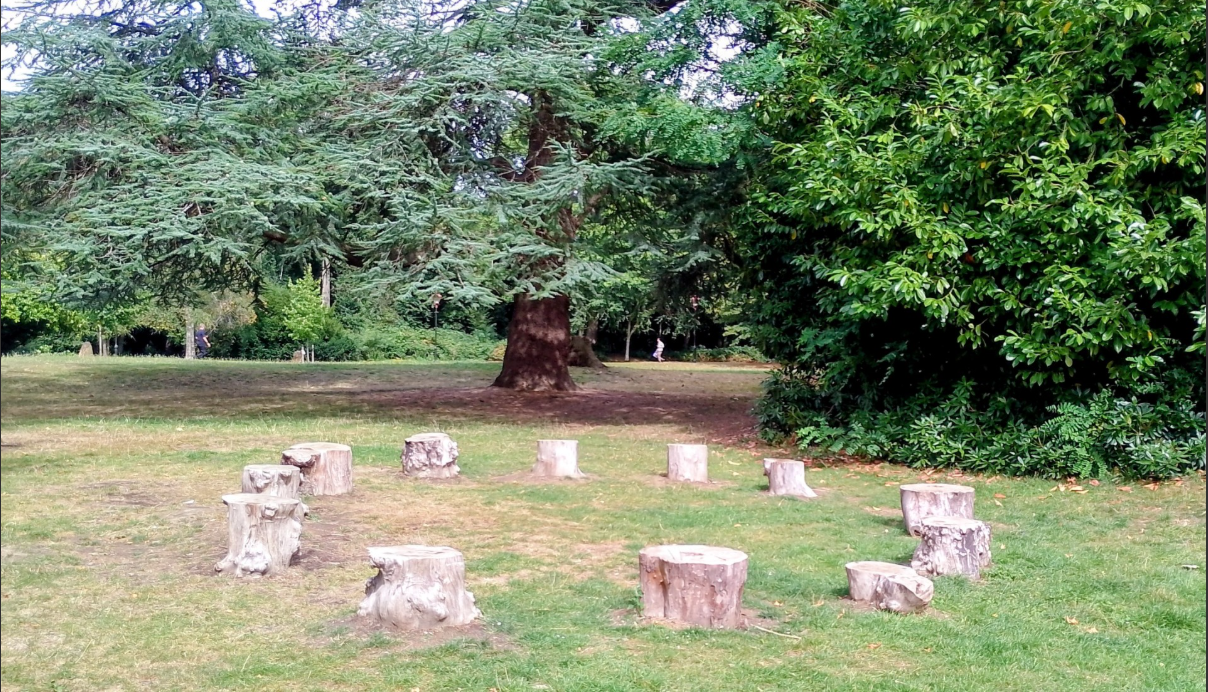In 2018, The Friends of Horsham Park ran a poetry competition to celebrate and commemorate our Year of Culture. The winning poem, alongside poems by our local famous poets; Percy Bysshe Shelley, Hilaire Belloc and Julia Donaldson, were displayed attached to a large array of tree-trunk seats near the park’s Station entrance approach.
And so, Poets’ Corner was born.
Regrettably, time and tempest eventually decayed several of the oak seats and many of the poems were subsequently lost.
This tranquil location within the park had become a popular spot for groups to meet and in particular young families to gather, enjoying the inspiration both the park and the poetry provided.
However, as the seats have now been replaced with sustainably-sourced elm roundels we have decided to bring Poets’ Corner to life once more. This time the poems have also been reproduced here on our website for all to enjoy, whilst still being fully accessible in the park via a QR code.
The poems displayed will vary over time but will always include all of the great Sussex poets along with some of our best modern day writers.
To begin with, we offer you the following from poet and Sussex Cup 2025 winner, Robin de Rosario (aka Robin Knight). Robin’s award-winning poetry has featured in British, North American, Indian, and European journals including Poetry Wales, The North, The American Journal of Poetry, Rattle, and The Bangalore Review, and his poem The Lightning Struck Herd stood victorious amongst a fantastic 50 submissions, with judging decided by Jo Bunn, the Bard of Worthing.
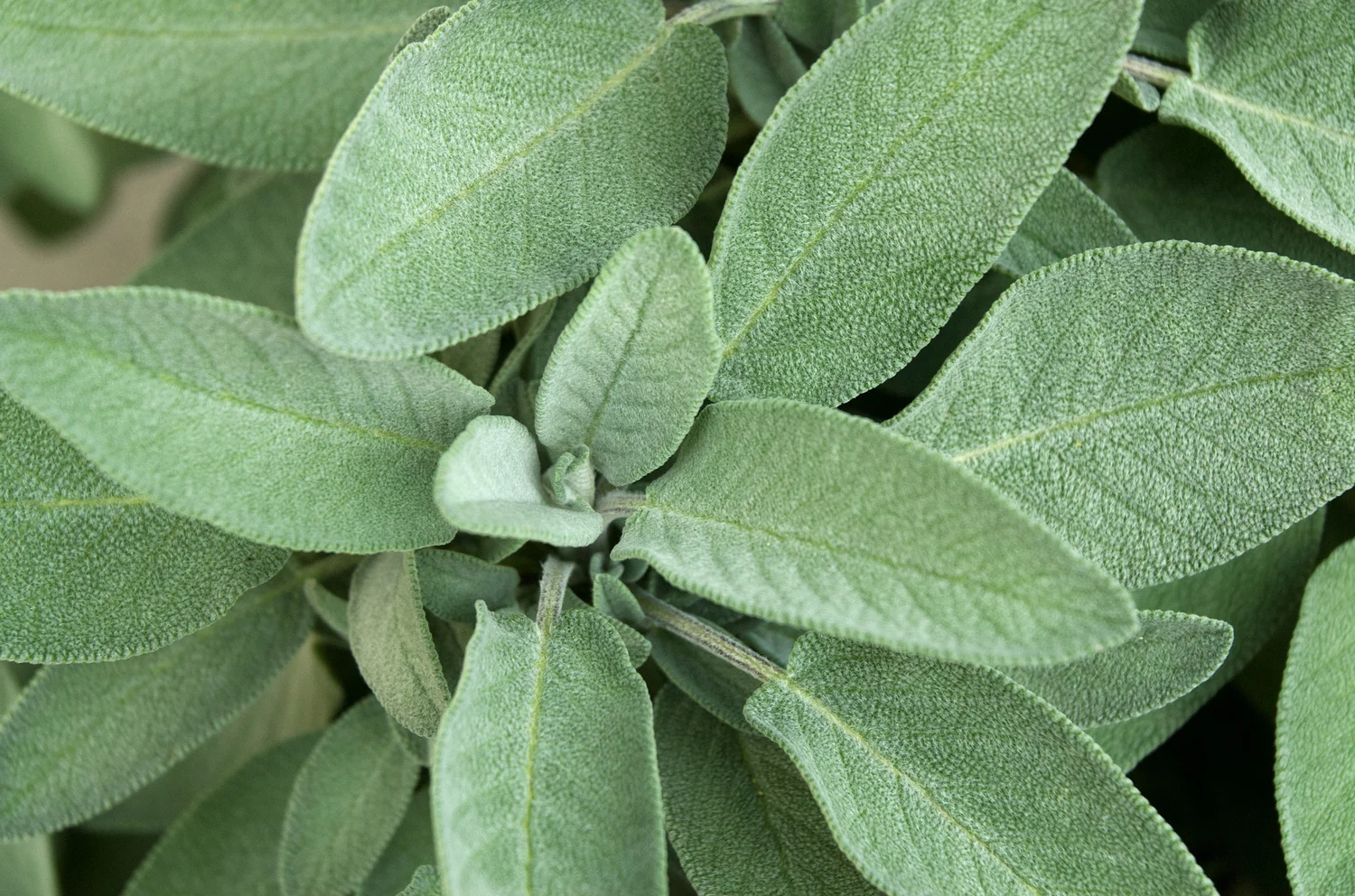
Sussex Cup: Robin de Rosario – The Lightning Struck Herd
We rode out through high summer
meadows towards foothills and forest,
towards the lightning struck herd.
Flash mummified, barred
forever from putrefaction,
their sunlit grave was desiccated,
impeding earthly communion.
Slowing, the wrangler nodded at
their drum tight ribs, their rigid legs
their weatherproof permanence.
If you don’t like the weather in Wyoming
stick around for fifteen minutes.
The beating of our horses’ hooves
was smothered by the stillness
of the dead, their silent lowing
deafening.
Higher yet, the vista of rock and pines
was broader than the sky.
Brush reached up to tug at our boots,
the spirits of creatures reunited
with the soil dragging us down.
The momentum of our horses
freed us. With each release
the scent of sage reborn.
You can also click HERE to see the fantastic winners of the Sussex Cup 2024, as hosted on The Shelley Memorial Project. an organisation we have been proudly working alongside to deliver a permanent memorial to the great Romantic and radical poet, Percy Bysshe Shelley, within Horsham Park.
We’re thrilled to include the following selection of some of Sussex’s greatest poets. From French-born politician, satirist and sailor Hillaire Belloc, to the great Romantic poet Percy Bysshe Shelley himself; to the fantastic poet and translator Sasha Dugdale, and The Shelley Memorial Project’s very own Sussex Cup 2024 winner, mental health advocate and practitioner Caroline Berry (click HERE to view her Instagram). Our list is endless!
Intrigued? Want to find out more? Of course you do! Simply click the images below to be taken to view the bios of these incredibly talented poets and authors both past and present
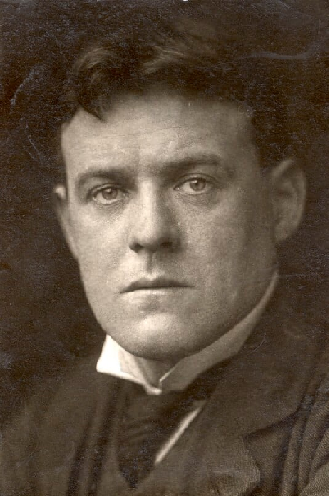
Hillaire Belloc – ‘The South Country’
When I am living in the Midlands
That are sodden and unkind,
I light my lamp in the evening:
My work is left behind;
And the great hills of the South Country
Come back into my mind.
The great hills of the South Country
They stand along the sea;
And it’s there walking in the high woods
That I could wish to be,
And the men that were boys when I was a boy
Walking along with me.
The men that live in North England
I saw them for a day:
Their hearts are set upon the waste fells,
Their skies are fast and grey;
From their castle-walls a man may see
The mountains far away.
The men that live in West England
They see the Severn strong,
A-rolling on rough water brown
Light aspen leaves along.
They have the secret of the Rocks,
And the oldest kind of song.
But the men that live in the South Country
Are the kindest and most wise,
They get their laughter from the loud surf,
And the faith in their happy eyes
Comes surely from our Sister the Spring
When over the sea she flies;
The violets suddenly bloom at her feet,
She blesses us with surprise.
I never get between the pines
But I smell the Sussex air;
Nor I never come on a belt of sand
But my home is there.
And along the sky the line of the Downs
So noble and so bare.
A lost thing could I never find,
Nor a broken thing mend:
And I fear I shall be all alone
When I get towards the end.
Who will there be to comfort me
Or who will be my friend?
I will gather and carefully make my friends
Of the men of the Sussex Weald;
They watch the stars from silent folds,
They stiffly plough the field.
By them and the God of the South Country
My poor soul shall be healed.
If I ever become a rich man,
Or if ever I grow to be old,
I will build a house with deep thatch
To shelter me from the cold,
And there shall the Sussex songs be sung
And the story of Sussex told.
I will hold my house in the high wood
Within a walk of the sea,
And the men that were boys when I was a boy
Shall sit and drink with me.
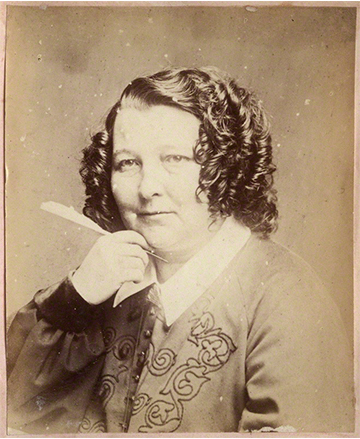
Eliza Cook – ‘The Old Arm-Chair’
I love it, I love it; and who shall dare
To chide me for loving that old arm-chair?
I’ve treasured it long as a sainted prize,
I’ve bedew’d it with tears, and embalmed it with sighs;
’Tis bound by a thousand bands to my heart;
Not a tie will break, not a link will start.
Would ye learn the spell? a mother sat there,
And a sacred thing is that old arm-chair.
In childhood’s hour I linger’d near
The hallow’d seat with list’ning ear;
And gentle words that mother would give,
To fit me to die and teach me to live.
She told me shame would never betide,
With truth for my creed and God for my guide;
She taught me to lisp my earliest prayer,
As I knelt beside that old arm-chair.
I sat and watch’d her many a day,
When her eye grew dim, and her locks were grey;
And I almost worshipp’d her when she smil’d
And turn’d from her Bible to bless her child.
Years roll’d on, but the last one sped—
My idol was shatter’d, my earth-star fled;
I learnt how much the heart can bear,
When I saw her die in that old arm-chair.
’Tis past! ’tis past! but I gaze on it now
With quivering breath and throbbing brow:
’Twas there she nursed me, ’twas there she died;
And memory flows with lava tide.
Say it is folly, and deem me weak,
While the scalding drops start down my cheek;
But I love it, I love it, and cannot tear
My soul from a mother’s old arm-chair.
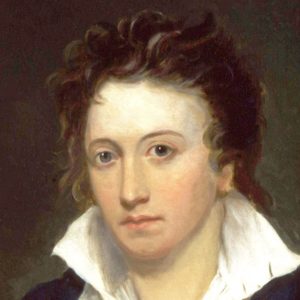
Percy Bysshe Shelley – ‘To A Skylark’
Hail to thee, blithe Spirit!Bird thou never wert,That from Heaven, or near it,Pourest thy full heartIn profuse strains of unpremeditated art. Higher still and higherFrom the earth thou springestLike a cloud of fire;The blue deep thou wingest,And singing still dost soar, and soaring ever singest. In the golden lightningOf the sunken sun,O’er which clouds are bright’ning,Thou dost float and run;Like an unbodied joy whose race is just begun. The pale purple evenMelts around thy flight;Like a star of Heaven,In the broad day-lightThou art unseen, but yet I hear thy shrill delight, Keen as are the arrowsOf that silver sphere,Whose intense lamp narrowsIn the white dawn clearUntil we hardly see, we feel that it is there. All the earth and airWith thy voice is loud,As, when night is bare,From one lonely cloudThe moon rains out her beams, and Heaven is overflow’d. What thou art we know not;What is most like thee?From rainbow clouds there flow notDrops so bright to seeAs from thy presence showers a rain of melody. Like a Poet hiddenIn the light of thought,Singing hymns unbidden,Till the world is wroughtTo sympathy with hopes and fears it heeded not: Like a high-born maidenIn a palace-tower,Soothing her love-ladenSoul in secret hourWith music sweet as love, which overflows her bower: Like a glow-worm goldenIn a dell of dew,Scattering unbeholdenIts aëreal hueAmong the flowers and grass, which screen it from the view: Like a rose embower’dIn its own green leaves,By warm winds deflower’d,Till the scent it givesMakes faint with too much sweet those heavy-winged thieves: Sound of vernal showersOn the twinkling grass,Rain-awaken’d flowers,All that ever wasJoyous, and clear, and fresh, thy music doth surpass. Teach us, Sprite or Bird, What sweet thoughts are thine:I have never heardPraise of love or wineThat panted forth a flood of rapture so divine. Chorus Hymeneal,Or triumphal chant,Match’d with thine would be allBut an empty vaunt,A thing wherein we feel there is some hidden want. What objects are the fountainsOf thy happy strain?What fields, or waves, or mountains?What shapes of sky or plain?What love of thine own kind? what ignorance of pain? With thy clear keen joyanceLanguor cannot be:Shadow of annoyanceNever came near thee:Thou lovest: but ne’er knew love’s sad satiety. Waking or asleep,Thou of death must deemThings more true and deepThan we mortals dream,Or how could thy notes flow in such a crystal stream? We look before and after,And pine for what is not:Our sincerest laughterWith some pain is fraught;Our sweetest songs are those that tell of saddest thought. Yet if we could scornHate, and pride, and fear;If we were things bornNot to shed a tear. I know not how thy joy we ever should come near.
Better than all measuresOf delightful sound,Better than all treasuresThat in books are found,Thy skill to poet were, thou scorner of the ground! Teach me half the gladnessThat thy brain must know,Such harmonious madnessFrom my lips would flowThe world should listen then, as I am listening now.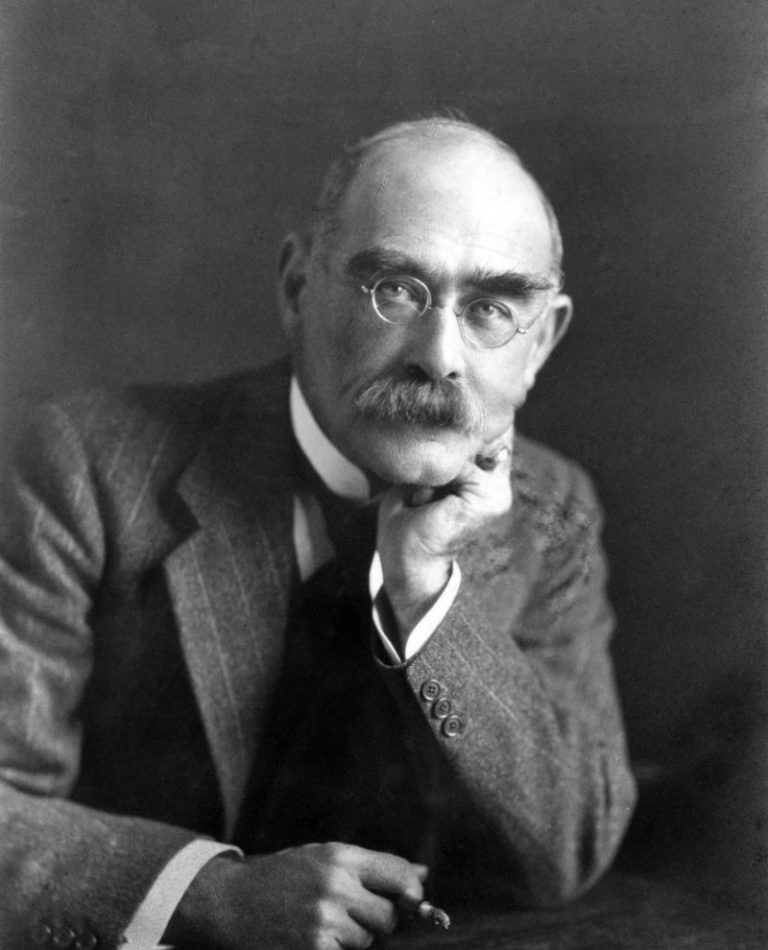
Rudyard Kipling – ‘Sussex’
God gave all men all earth to love,
But, since our hearts are small
Ordained for each one spot should prove
Beloved over all;
That, as He watched Creation’s birth,
So we, in godlike mood,
May of our love create our earth
And see that it is good.
So one shall Baltic pines content,
As one some Surrey glade,
Or one the palm-grove’s droned lament
Before Levuka’s Trade.
Each to his choice, and I rejoice
The lot has fallen to me
In a fair ground-in a fair ground —
Yea, Sussex by the sea!
No tender-hearted garden crowns,
No bosonied woods adorn
Our blunt, bow-headed, whale-backed Downs,
But gnarled and writhen thorn —
Bare slopes where chasing shadows skim,
And, through the gaps revealed,
Belt upon belt, the wooded, dim,
Blue goodness of the Weald.
Clean of officious fence or hedge,
Half-wild and wholly tame,
The wise turf cloaks the white cliff-edge
As when the Romans came.
What sign of those that fought and died
At shift of sword and sword?
The barrow and the camp abide,
The sunlight and the sward.
Here leaps ashore the full Sou’west
All heavy-winged with brine,
Here lies above the folded crest
The Channel’s leaden line,
And here the sea-fogs lap and cling,
And here, each warning each,
The sheep-bells and the ship-bells ring
Along the hidden beach.
We have no waters to delight
Our broad and brookless vales —
Only the dewpond on the height
Unfed, that never fails —
Whereby no tattered herbage tells
Which way the season flies —
Only our close-bit thyme that smells
Like dawn in Paradise.
Here through the strong and shadeless days
The tinkling silence thrills;
Or little, lost, Down churches praise
The Lord who made the hills:
But here the Old Gods guard their round,
And, in her secret heart,
The heathen kingdom Wilfrid found
Dreams, as she dwells, apart.
Though all the rest were all my share,
With equal soul I’d see
Her nine-and-thirty sisters fair,
Yet none more fair than she.
Choose ye your need from Thames to Tweed,
And I will choose instead
Such lands as lie ‘twixt Rake and Rye,
Black Down and Beachy Head.
I will go out against the sun
Where the rolled scarp retires,
And the Long Man of Wilmington
Looks naked toward the shires;
And east till doubling Rother crawls
To find the fickle tide,
By dry and sea-forgotten walls,
Our ports of stranded pride.
I will go north about the shaws
And the deep ghylls that breed
Huge oaks and old, the which we hold
No more than Sussex weed;
Or south where windy Piddinghoe’s
Begilded dolphin veers,
And red beside wide-banked Ouse
Lie down our Sussex steers.
So to the land our hearts we give
Til the sure magic strike,
And Memory, Use, and Love make live
Us and our fields alike —
That deeper than our speech and thought,
Beyond our reason’s sway,
Clay of the pit whence we were wrought
Yearns to its fellow-clay.
God gives all men all earth to love,
But, since man’s heart is smal,
Ordains for each one spot shal prove
Beloved over all.
Each to his choice, and I rejoice
The lot has fallen to me
In a fair ground-in a fair ground —
Yea, Sussex by the sea!
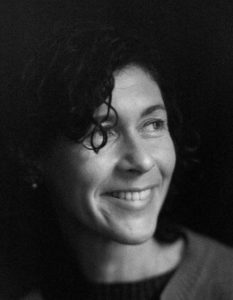
Sasha Dugdale – ‘The Fall of Rebel Angels’
They didn’t fall. It wasn’t a pillar of legs and arms.
a downpour of limbs, a shaft of flesh
like a rainstorm, dark over the sea
No, they walked. They shouldered packs
laced boots, adjusted straps.
In hi-spec technical wear,
fleeces, gaiters, fearless, the angels
dropped from mountain top
and picked through the debris of rock
hopped over pavements, sundew, grikes
down scarps and slopes
entering the world on the thinnest paths,
the GRs from the stars
the trail, the aura
of a rope team on a glacier
the scramble, the clumsy jump
the odd angel on a bog,
jumping like a man from clump to clump
of cottongrass, falling into mud,
on a seraphic arse, over the stiles and gates
and shifting slate in drystone walls,
and bathing in tarns, marvelling at
lambs, napping under pines
walking, walking in the angelic lines.
And when they slept their up-till-then
unused legs kept walking in their sleep, their dreams were
of rights-of-way. And even when the coming of
day meant binding feet and the dampness of wings
still they hoisted their packs and took their flasks
and walked and walked, lacing the land
with endless small tracks, which led
(where angels did not fear to tread)
down into valleys and snaking over passes
shining tracks, visible to the naked
eye, the man in glasses, the woman
holding a map. Daily trespassing
angels, angels who walked, and fell
from grace into mountain streams
forgive us our lack
of dreams, we have forgotton
how to rebel

Caroline Berry – ‘Here She Comes!’
Oh, here she comes!
With her light and her warmth.
Her soft, gentle breeze
Begins to tease.
A Siren of the sun –
The beckoning has begun.
Flowers start to bloom
Removing the gloom
Of the cold, dark enemy that came before her.
She brings a sense of hope and promise
As nature gifts new life.
Welcome rain helps to nourish
Blossom and bulbs begin to flourish.
She shares in the sweet birdsong –
Fledglings flustering, with a whistling chirrup
Industrious bees buzz and bustle
Paths carpeted with yellow daffodils
Their trumpets perfectly poised.
As she hands the baton to her reliable friend
Who promises long evenings that never end
Who rises majestically with a scorching glow
A phenomenal Phoenix, her haunting melody to bestow.
This seasoned chum
Brings a brighter, more fierce sun.
With folk toiling and mowing
And shrubs relentlessly growing
She brings people together
In a frisky abandon of garments and detritus
Feeding the greedy, gossiping gulls.
Unexpectedly, the evenings darken.
There’s a sudden chill in the air.
The Thunderbird arrives to command our skies
Bringing gusts and gales with their howls and their cries.
She brings with her a lush new palette
Of red, orange, brown and yellow
As the world sets to work to prepare for its foe.
Squirrels hustle
Leaves fall and rustle
Laying a colourful blanket over our Earth.
Beaks and paws gather twigs, fruit and nuts
And our feathered friends swarm off to warmer climes
While others build shelter and bide their time.
Then all too quickly she emerges.
A monochrome, ethereal creature
Her icy heart turning everything white and dark.
This graceful Griffin swoops in
And claims the land with her frosty claws
Her unrelenting strength destroying all in her path.
The World takes cover.
And waits for the freezing onslaught to be over.
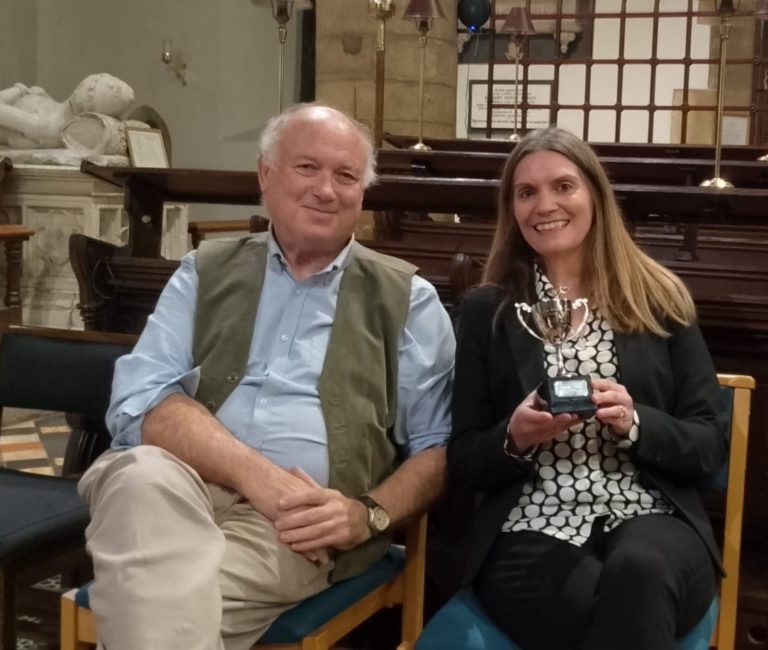
The incomparable Caroline Berry receives the Sussex Cup in 2024 from esteemed SMP guest, author and poet Louis de Bernieres.
And of course, what would this page be without including our 2018 Year of Culture Poetry Competition winner, Maurice Packham:
HORAS NON NUMERO NISI SERENAS*
Well, that would be a very simple thing to do
If, like Freud, you could discard the pain
Of memories sad, taking the optimistic view,
And only see the happier times again.
Be that as it may, we lived a pleasant hour
Among the lavenders and thyme and sage
And pretty things that late in Summer flower;
And for a time we forgot the weight of age
And talked of happier things and moments droll
Snatched from a past that cannot change,
For which even Nature cannot charge a toll,
Discussing things both rich and wondrous strange.
What earthly pleasure is there quite so sweet
As gentle friends conversing on a seat?

